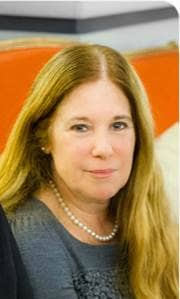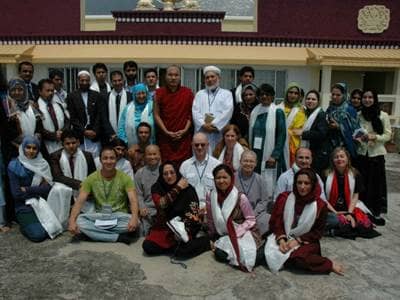One of the women advocating gender equality in religion and female leadership is Dena Merriam, award recipient of the 2014 Niwano Peace Prize for her interfaith work, and founder of the Global Peace Initiative for Women (GPIW). Formed in 2002, the nonprofit organization centers on “uncovering the common ground between faith traditions to create a joint platform for global healing and unity.”
“It’s been a long struggle as a woman in the interfaith world,” Merriam explains. “When I began this about 15 years ago, there were not many doors opened. It was very difficult to find women religious leaders; which is why I started this.”
“I organized my first summit at the U.N. World Peace Summit of Religious Leaders, and we had a difficult time finding women religious speakers,” she says. “90% of the speakers were men and many of the women were upset about this.”
Looking to others for support, the organization faced severe opposition and Merriam’s intentions were questioned.
“We went back to all the organizations that supported us, and every door was closed. We went to Geneva and the interfaith community, and we were told ‘We don’t want your American feminism,’” she says. “I never thought of it as a feminist issue. I just thought why can’t we have women leaders? Women are making progress in government and business. Why is religion such an issue? What is the deeper root of this? Why do people not talk about it?”
Making a decision to start the dialogue, in October 2002, the World Summit of Women Religious and Spiritual Leaders became a success, with over 750 women in attendance, including men.
Since then, the GPIW has helped transform women’s involvement in religious institutions, organizing several initiatives to combat gender issues, as well as unifying Eastern and Western faiths and developing youth leadership programs.
Resistance to gender equality is softening in some areas, but still persists as some religious institutions continue to deny women top leadership roles, such as priesthood in the Catholic Church.
“Public opinion has changed,” Merriam states. “And many women have found a way to be an active part of religious leadership without the accoutrements; without the titles and the roles. But I think increasingly, it’s going to be hard for institutions to deny that to women."
Throughout history, women have been significant to religious traditions and culture as prominent figures, regarded as saints, gurus, nuns, scholars, etc. Although recognized, women have been limited to certain roles, restricted in ways men have not, unable to achieve mobility to affect social and institutional change.
Now that these structures are dismantling and the exclusion of women’s input is no longer viable, how can women be advantageous in changing spiritual leadership? Merriam points out that a new way of thinking is needed, given the pressing global topics at hand.
“Women have an important role to play in what’s happening now because new thinking, new perspectives are needed, if we’re going to make any breakthroughs or see any change,” says Merriam.
“What would have been a burden for women, the fact that they have been left out of the leadership, it may give them more freedom to take courageous steps and speak out. They’re not bound,” she adds. “Inviting women into the development stage, and enabling women to shape the agenda and the content is equally important, more important.”
Merriam positions that gender equality is just the start, and hopes that more will shift towards gender unity and cohesion to tackle world issues and encourage interfaith dialogue.
“…We’re shifting more towards the male-female harmony. There was a time where we really needed to focus on strengthening women and giving them a platform, but what’s desperately needed now is partnership where women and men have to work together in a harmonious and complimentary way; setting a new paradigm.”
Dena Merriam is the first American woman to receive the Niwano Peace Award.




